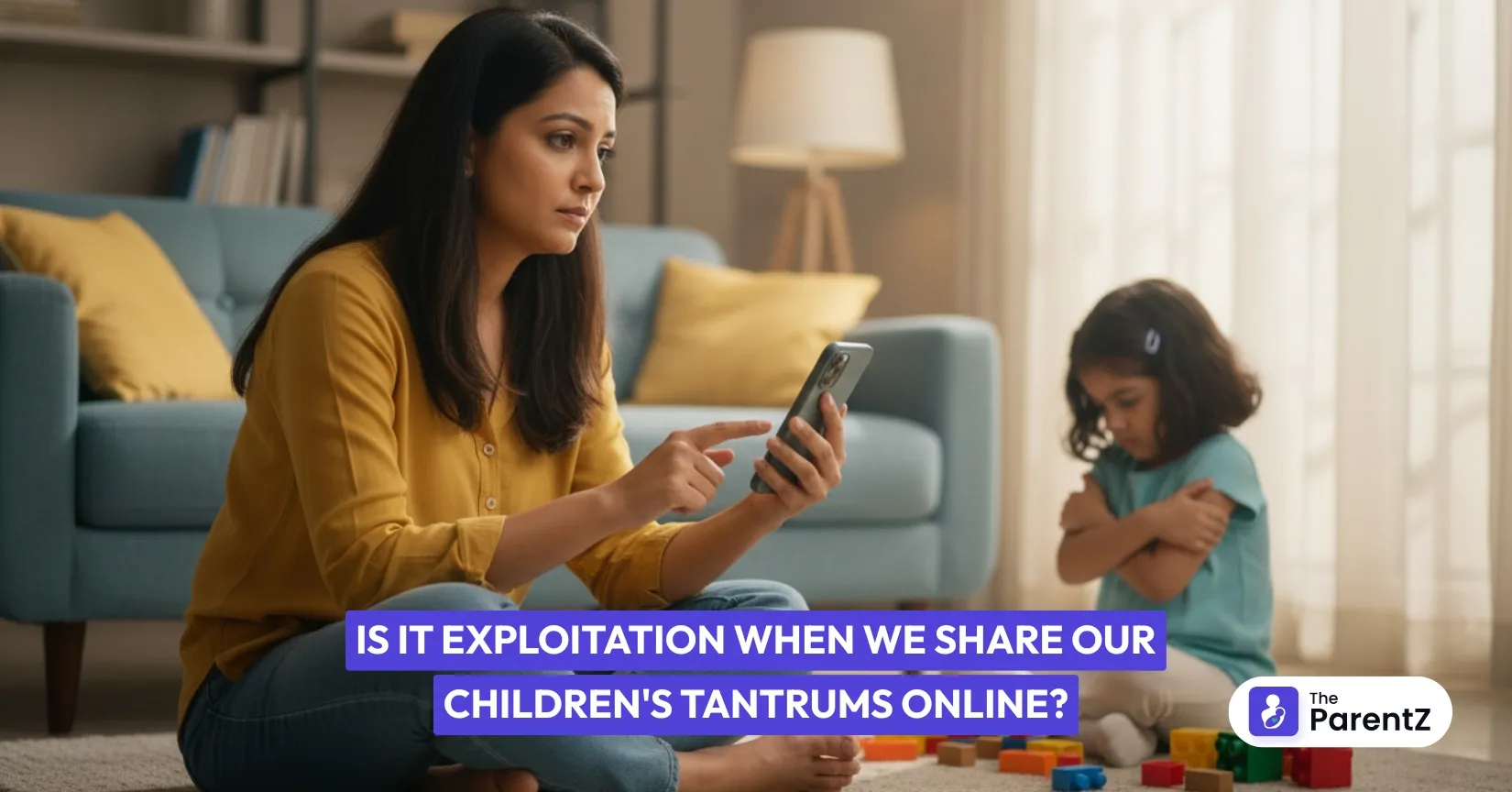Your four-year-old is lying on the supermarket floor, screaming because you won't buy the cereal with the cartoon character. Your first instinct? Grab your phone. Not to call for backup, but to record it. Maybe you'll share it with family. Maybe it'll go on Instagram with a funny caption. "Toddler life, am I right?"
We've all been there. Or at least, we've all seen those posts.
But what happens when that video is still online in ten years? What happens when your child's future classmates find it? When their first crush sees it? When they're applying for their first job?
We're All Just Trying to Survive
Parenting today is intense as we're doing it in an era where everything is documented, shared, and liked. Our parents raised us without an audience, but we're raising kids with one. Sometimes thousands of people are watching our every move.
And sometimes sharing helps. It makes us feel less alone. When you post about your kid's thirty-minute meltdown over wearing socks, and forty other parents comment "SAME," it feels like relief. Like you're not failing. Like this is just normal kid stuff.
That connection is real. That support matters.
But our kids didn't sign up for that support group.
Let's Think About It From Their Side
Your daughter is having the worst day of her three-year-old life. She's tired, hungry, overwhelmed, and her brain literally doesn't have the tools yet to handle big emotions. So she melts down.
Now imagine being her. You're at your absolute lowest, most vulnerable moment. And someone is filming you. Someone is laughing. Someone is going to show this to other people.
As adults, we'd be mortified. If someone filmed us during our worst moments, like crying after a breakup, yelling at customer service, or having a panic attack, and posted it online, we'd feel violated. We'd probably call it bullying.
But when it's our kids, we call it "relatable content."
The Thing About Digital Permanence
What we share doesn't disappear. That photo album from your childhood? It's in your parents' attic. Your kid's tantrum video? It's on a server somewhere, potentially forever.
Let’s imagine a situation. A mom shared a funny video of her son, maybe six years old, crying because his sandwich was cut wrong. Hilarious, right? Except that video got shared and shared and shared. Two years later, kids at his school were still bringing it up. Still teasing him about it.
He started refusing to eat sandwiches at school.
That's the thing about kids, they don't forget when they've been made fun of. And the internet definitely doesn't forget.
But It's Just One Video, Right?
Maybe you're thinking, "Come on, it's not that serious. It's just one cute video."
But think about it from your child's perspective. They can't consent. They don't understand what "going viral" means. They don't understand that their classroom tantrum might be watched by strangers in another country.
And they definitely don't understand why mom thought their pain was entertaining enough to share with the world.
Kids are building their sense of self. They're figuring out who they are, what they're worth, and whether they can trust the adults around them. When we share their most vulnerable moments for laughs or likes, what does that teach them?
That their feelings are entertainment. That their privacy doesn't matter. That it's okay for people to laugh at them when they're struggling.
The Real Question
So is it exploitation?
Here's something to consider before hitting post: would you want someone to share this about you? Would you be okay with your own parent posting a video of you at your worst moment, with thousands of strangers watching?
If your answer is no, then maybe your kid's answer would be no too.
This isn't about never sharing anything about your children. Baby's first steps? Sure. A cute quote? Probably fine. But their tears? Their tantrums? Their moments of complete emotional breakdown?
Those belong to them. Not to your followers.
Conclusion
Next time your kid has a meltdown, put the phone down. Be with them. Help them through it. Later, when they're calm, you can still reach out for support like texting a friend, posting something vague, or talking about the general experience without the specifics.
You can get the connection you need without using your child's dignity as currency.
Because at the end of the day, those tantrums are not just "content." They're your child's real emotions, real struggles, and real moments. And they deserve to work through them without an audience.
Even if that audience is giving you a hundred heart emojis.





Be the first one to comment on this story.